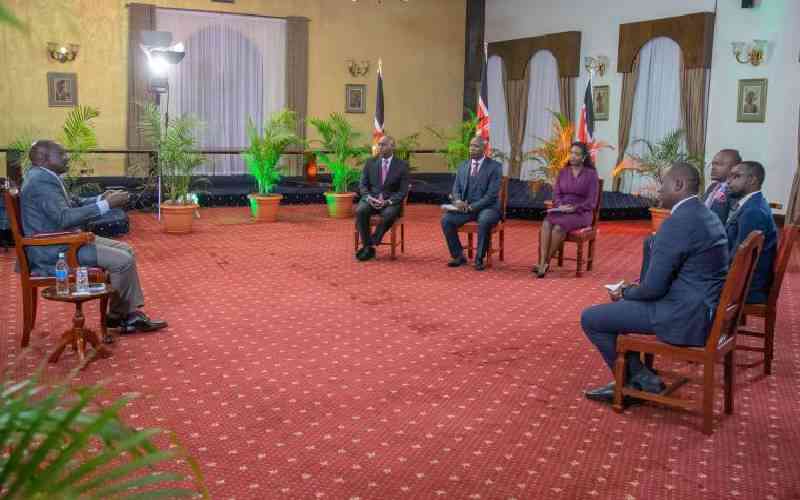
President William Ruto's griping about, and raging against, the previous administration in his interview last week with journalists from carefully selected media organisations achieved one key thing: It tarred the Raila-led opposition with the same brush of the former administration. The president depicted both as partners in human rights abuses.
Ruto's message to the public was: The Handshake-Raila's bromance with former President Uhuru Kenyatta between March 2018 and August 2022-was an unholy bilateralism in which one side committed the crime and the other looked the other way, and both are accountable.